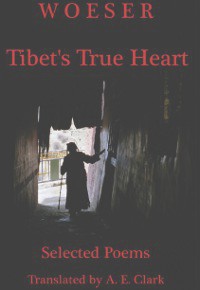An Olympics that has been not only politicized but tribalized
For historical reasons, many parts of Amdo observe religious celebrations and traditional holidays according to the Chinese lunar calendar. August 8, when the Beijing Olympics opened, corresponded to July 8 in the lunar calendar, and that is the first day of the July Festival at the great monastery of Labrang in Amdo. It is marked by a solemn Cham dance performed before a throng of believers both clerical and lay. This annual Buddhist gathering has been repeated for more than two hundred years, but because it coincided with the Beijing Olympics, it was cancelled by the authorities.
One crestfallen monk told me: “The government has forbidden us several things: no leaving the monastery, no holding meetings, and no protests. More than a hundred plainclothesmen dressed as tourists have been circulating inside the monastery for many days now, every day. Each work unit and the nearby villages have assigned someone to watch us closely. Ordinary people can enter the monastery to worship only if they show their papers. Ai! They have their Olympics; why won’t they let us hold our traditional gathering too?”
Friends in the area have told me that on the day of the Olympic opening ceremony, in Xiahe town almost all the shops and restaurants owned by Tibetans remained shuttered in protest. Many of the old folks moving around the monastery wept as they turned the mani wheels.
August 12 (in the modern calendar) was the date for a traditional horse−racing fair on the grasslands of Sang Khok in southern Gansu. At the appointed time, between ten and twenty thousand herdsmen would converge and meet there, and revered lamas would pray for them. In recent years, the local government has butted in to manage the whole thing, turning the horse−racing fair into a big hodgepodge of activities geared to tourism, making deals, attracting investment, and so forth. But this year’s fair couldn’t be managed, although a great many herdsmen had already arrived on the grasslands a few days early to pitch their tents and make ready for this holiday rich in tradition. With a single decree, the authorities burst their bubble.
The reason was obvious without being stated. These days, any Tibetan is viewed as a potential terrorist. An assembly of tens of thousands of Tibetans would naturally be considered highly dangerous, plus it would have coincided with the Beijing Olympics. In line with Deng Xiaoping’s dictum that destabilizing elements should be nipped in the bud, there was no way the local officials — who feared they would take the blame if anything went wrong — were going to let the Tibetans have their horse-racing fair. And this made the Tibetans furious, which in turn put the officials even more on their guard. In fact, for the past few days, Xiahe has been closed off. Outsiders can’t go in, people inside can’t come out, and Tibetans in the neighboring areas are not allowed to ride their motorcycles into town. As for the Sang Khok prairie, it has been hermetically sealed by a ring of soldiers and police armed with live ammunition.
I visited some Tibetans in Amdo and asked them what they thought of the Beijing Olympics.
One was an elderly farmer who had been classified as a ‘seditious element’ in 1958 and sent for re−education through labor. Nowadays he lives with his children in a rural village. He said, “It was only because they wanted a successful Olympics that China agreed to hold talks with the Dalai Lama’s envoys. They talked a couple of times, and their attitude got worse and worse; maybe once the problem of staging the Olympics had been solved, they basically didn’t care. The word of China can’t be trusted. Today like this; tomorrow like that: look at the Olympics.”
A well−educated Tibetan who is now a middle−aged entrepreneur told me that because his two children had grown up in Han−majority cities, they had never known that being Tibetan made any difference. But in school after “3-14” they were reviled by their classmates as “Tibetan independence elements.” This experience changed them profoundly. Watching the Olympic competition, they could only root for foreign teams: they couldn’t stand seeing the Chinese team win. It has caused him, as their father, distress over their current plight and anxiety about their future.
A monk who was detained and beaten up in March says: “The Olympics have frightened lots of people, not only Tibetans. Even many officials now have the mindset of soldiers facing a daunting foe. But for Tibetans the fear is greater because other people treat you as an enemy from the start. This Olympics has become not only politicized, but tribalized: it goes against the Olympic spirit. And these humiliations are etched forever in the minds of those who endured them.”
Woeser wrote this article for Radio Free Asia’s Tibetan−language service. She posted the Chinese text on September 5.


